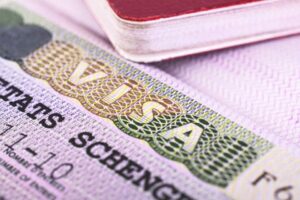The backbone of the EU Digital Covid-19 Certificate, known as the gateway or portal, has gone live today, 1 June 2021, and has allowed 7 Member States to begin issuing the certificates, according to an announcement published by the European Parliament.
The Member States that have gone live and begun processing requests to receive the certificate include Bulgaria, Czechia, Denmark, Germany, Greece, Croatia, and Poland.
The abovementioned Member States have connected to the gateway on the first day of its launch, allowing people to receive the Digital Covid-19 Certificate in order to move freely once again.
Other Member States are waiting until later dates for a variety of reasons, including waiting until all functions are fully live, or waiting until they get their end figured out.
The launch of the gateway that is allowing for the certificate to go live follows a political agreement made by the Commission and the Council on 20 May 2021 regarding the details of the certificate.
The gateway will allow for authorities to verify the authenticity of a person’s Covid-19 vaccination, testing, or recovery records.
According to the announcement, information will be stored in a QR code, allowing for information to be verified quickly and efficiently.
No personal or sensitive information will be stored by the gateway, according to the announcement.
The launch of the Digital Covid-19 Certificate could signal the beginning of non-essential travel to Europe beginning once again on a significant scale. Because EU authorities see some sort of vaccine passport as a needed measure to restore the right to freedom of movement within the Schengen Area, it is an important step in that direction. Once more or most Member States begin using the system, it could be a useful tool for travelers to Europe.
“The Go-Live of the Gateway today is an important step which will allow Member States to start using the Gateway and start issuing EU Digital COVID Certificates. Seven Member States is a good start. I encourage others to follow as soon as possible. The timely preparation will allow the full system to be up and running by 1 July – when the proposal enters into application and the EU will be on time to open up again this summer,” said Thierry Breton, Commissioner for the Internal Market.
The process for implementing the certificate began on 17 March 2021 with a proposal from the Commission to create a certificate to allow for freedom of movement. By 21 April 2021, technical specifications were made. On 20 May 2021, the Commission and Council made a provisional agreement on the specifications to move forward with the certificate, and the certificate was subsequently made live on 1 June 2021.









